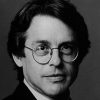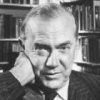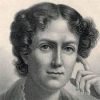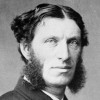Since the earliest days, philosophers have dreamed of a country where the mind and spirit of man would be free; where there would be no limits to inquiry; where men would be free to explore the unknown and to challenge the most deeply rooted beliefs and principles. Our First Amendment was a bold effort to adopt this principle — to establish a country with no legal restrictions of any kind upon the subjects people could investigate, discuss, and deny.
Hugo Black (1886-1971) American politician and jurist, US Supreme Court Justice (1937-71)
James Madison Lecture, NYU School of Law (1960-02-17)
(Source)
The inaugural Madison lecture. Reprinted as "The Bill of Rights," NYU Law Review, Vol. 35 (Apr 1960)
Quotations about:
freethinking
Note not all quotations have been tagged, so Search may find additional quotes on this topic.
My opinion is that there would never have been an infidel, if there had never been a priest. The artificial structures they have built on the purest of all moral systems, for the purpose of deriving from it pence and power, revolts those who think for themselves, and who read in that system only what is really there.
Thomas Jefferson (1743-1826) American political philosopher, polymath, statesman, US President (1801-09)
Letter to Margaret Bayard Smith (6 Aug 1816)
(Source)
We cannot have a society half slave and half free; nor can we have thought half slave and half free. If we create an atmosphere in which men fear to think independently, inquire fearlessly, express themselves freely, we will in the end create the kind of society in which men no longer care to think independently or to inquire fearlessly.
Henry Steele Commager (1902-1998) American historian, writer, activist
“What Ideas Are Safe?” Saturday Review (5 Nov 1949)
(Source)
Reprinted in Freedom and Order (1966).
Our secularism is hard-won, the product of centuries of political, intellectual, and sometimes physical courage. Secularism is the institutionalization of doubt, or more precisely of respect for doubt. It is harder to love doubt than to love freedom. So we are grudging about our secularism, and some of us are a little ashamed of it. Maybe it takes Rushdie’s nightmare and Khomeini’s rage to remind us how precious it is, and how fiercely it must be guarded.
Hendrik Hertzberg (b. 1943) American journalist, editor, speech writer, political commentator
“TRB from Washington,” The New Republic (20 Mar 1989)
(Source)
Heresy is only another word for freedom of thought.
Graham Greene (1904-1991) English novelist [Henry Graham Greene]
“Freedom of Thought,” speech accepting the Jerusalem Prize (6 Apr 1981)
(Source)
What is originality? Undetected plagiarism. This is probably itself a plagiarism, but I cannot remember who said it before me. If originality means thinking for oneself, and not thinking differently from other people, a man does not forfeit his claim to it by saying things which have occurred to others.
William Ralph Inge (1860-1954) English prelate [Dean Inge]
London Evening Standard (1927)
Parallel to this, in James Marchant, ed., Wit and Wisdom of Dean Inge (1927), Inge is cited as saying, "Originality, I fear, is too often only undetected and frequently unconscious plagiarism."
The sentiment is, appropriately, not original with Inge; see here for more discussion and earlier uses.
That is the whole trouble with being a heretic. One must usually think out everything for oneself.
Aubrey Menen (1912-1989) British writer, novelist, satirist, theatre critic
The Duke of Gallodoro (1952)
(Source)
Be not afraid! In admitting a creator, refuse not to examine his creation; and take not the assertions of creatures like yourselves, in place of the evidence of your senses and the conviction of your understanding.
Frances "Fanny" Wright (1795-1852) Scottish-American writer, lecturer, social reformer
A Course of Popular Lectures, Lecture 3, “Of the more Important Divisions and Essential Parts of Knowledge” (1829)
(Source)
The freethinking of one age is the common sense of the next.
My opinion is that there would never have been an infidel, if there had never been a priest. The artificial structures they have built on the purest of all moral systems, for the purpose of deriving from it pence and power, revolts those who think for themselves, and who read in that system only what is really there.
Our forefathers found the evils of free thinking more to be endured than the evils of inquest or suppression. They gave the status of almost absolute individual rights to the outward means of expressing belief. I cannot believe that they left open a way for legislation to embarrass or impede the mere intellectual processes by which those expressions of belief are examined and formulated. This is not only because individual thinking presents no danger to society, but because thoughtful, bold and independent minds are essential to wise and considered self-government.
Robert H. Jackson (1892-1954) US Supreme Court Justice (1941-54), lawyer, jurist, politician
American Communications Association v. Douds, 339 U.S. 382, 442 (1950) [concurrence and dissent]
(Source)
The first thing I want to teach is disloyalty. … This will beget independence — which is loyalty to one’s best self and principles, and this is often disloyalty to the general idols and fetishes.
Few people are capable of expressing with equanimity opinions which differ from the prejudices of their social environment. Most people are even incapable of forming such opinions.
[Wenige sind imstande, von den Vorurteilen der Umgebung abweichende Meinungen gelassen auszusprechen; die Meisten sind sogar unfähig, überhaupt zu solchen Meinungen zu gelangen.]
Albert Einstein (1879-1955) German-American physicist
“Neun Aphorismen” (23 May 1953), Essays Presented to Leo Baeck on the Occasion of His Eightieth Birthday (1954) [Einstein Archives 28-962]
(Source)












